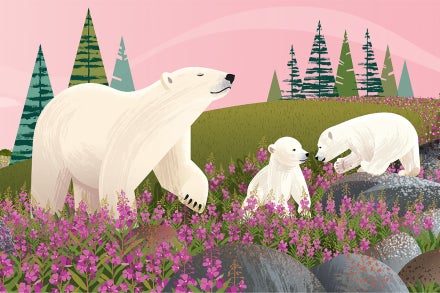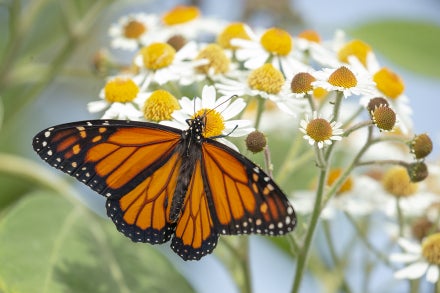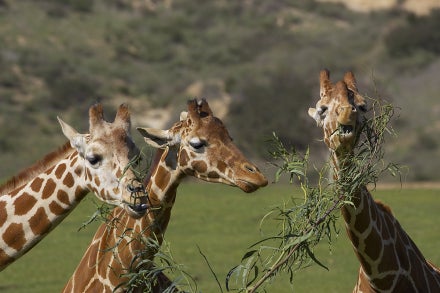Image

Zoo InternQuest is a seven-week career exploration program for San Diego County high school juniors and seniors. Students have the unique opportunity to meet professionals working for the San Diego Zoo, Safari Park, and Institute for Conservation Research, learn about their jobs, and then blog about their experience online. Follow their adventures here on the Zoo’s website!
 For the final week of Zoo InternQuest, interns had the opportunity to meet with Deborah Lowe, Nutritional Service Supervisor, and Dr. Katie Kerr, associate nutritionist. Ms. Lowe received her undergraduate degree from UCSD in general biology, and Dr. Kerr received her PhD in animal nutrition. These two fantastic individuals showed interns the Forage Warehouse where they store and prepare food for all the animals in the Zoo. Interns saw the multiple freezers where food is kept and looked at the barns where they store hay, dry goods, and insects. It was truly an experience I will never forget, especially since I ate a live, wriggling, worm. I guess I can cross that off my bucket list! Enough about worms - we are going to take a look at nutrition from a point of view of conversation.
Now I know what you're thinking. What does nutrition have to do with conservation? More than you might think. The nutritionists keep all the animals happy and healthy, making sure each and every animal is properly fed. Food affects the animal’s appearance, health, and welfare. Every day, the nutritionists record the amount of calories and vitamins each animal consumes, feeding them precise amounts depending on their size and what they would normally eat in the wild. When animals have special needs, such as an illness or weight issues, the nutritionists adjust their diets as necessary. Without specialized zoo nutritionists, the breeding and preservation of many species would be at risk.
Another aspect conservation through nutritionists how they give the food to the animals. If zoo animals received their food in a bowl like a house pet, it could lead to animals becoming lazy, bored, and uninterested. In order to make sure animals are mentally healthy, the nutritionists need to incorporate enrichment into each of their meals. Enrichment is the process of making something more meaningful, substantial, or rewarding. Nutritionists formulate the diets in order to figure out how much enrichment item an animal can have without having a huge impact on the diet. Keepers may put the food under rocks or in trees and may even incorporate the food in puzzles and balls to stimulate healthy brain behavior. For predators like lions and tigers, zoo nutritionists are beginning to supply entire lamb carcasses. This resulted in a behavior keepers and nutritionists have never seen. Lions and tigers were roaming all over their exhibits occasionally grabbing the carcass and jumping up with it to an elevated platform.
Now you may be wondering, how can I do conservation through nutrition in my own home? Well, the key is to be careful about what your throw away or lose to the environment. Not necessarily every animal can eat what humans eat or throw away. Don’t feed your local ducks and squirrels because you never know what it will affect them. They are perfectly ok surviving by their natural diet and don’t need the extra food. So, the next time you think that nutrition has nothing to do with conservation, think again!
Keith, Conservation Team
Week Six, Fall Session 2016
For the final week of Zoo InternQuest, interns had the opportunity to meet with Deborah Lowe, Nutritional Service Supervisor, and Dr. Katie Kerr, associate nutritionist. Ms. Lowe received her undergraduate degree from UCSD in general biology, and Dr. Kerr received her PhD in animal nutrition. These two fantastic individuals showed interns the Forage Warehouse where they store and prepare food for all the animals in the Zoo. Interns saw the multiple freezers where food is kept and looked at the barns where they store hay, dry goods, and insects. It was truly an experience I will never forget, especially since I ate a live, wriggling, worm. I guess I can cross that off my bucket list! Enough about worms - we are going to take a look at nutrition from a point of view of conversation.
Now I know what you're thinking. What does nutrition have to do with conservation? More than you might think. The nutritionists keep all the animals happy and healthy, making sure each and every animal is properly fed. Food affects the animal’s appearance, health, and welfare. Every day, the nutritionists record the amount of calories and vitamins each animal consumes, feeding them precise amounts depending on their size and what they would normally eat in the wild. When animals have special needs, such as an illness or weight issues, the nutritionists adjust their diets as necessary. Without specialized zoo nutritionists, the breeding and preservation of many species would be at risk.
Another aspect conservation through nutritionists how they give the food to the animals. If zoo animals received their food in a bowl like a house pet, it could lead to animals becoming lazy, bored, and uninterested. In order to make sure animals are mentally healthy, the nutritionists need to incorporate enrichment into each of their meals. Enrichment is the process of making something more meaningful, substantial, or rewarding. Nutritionists formulate the diets in order to figure out how much enrichment item an animal can have without having a huge impact on the diet. Keepers may put the food under rocks or in trees and may even incorporate the food in puzzles and balls to stimulate healthy brain behavior. For predators like lions and tigers, zoo nutritionists are beginning to supply entire lamb carcasses. This resulted in a behavior keepers and nutritionists have never seen. Lions and tigers were roaming all over their exhibits occasionally grabbing the carcass and jumping up with it to an elevated platform.
Now you may be wondering, how can I do conservation through nutrition in my own home? Well, the key is to be careful about what your throw away or lose to the environment. Not necessarily every animal can eat what humans eat or throw away. Don’t feed your local ducks and squirrels because you never know what it will affect them. They are perfectly ok surviving by their natural diet and don’t need the extra food. So, the next time you think that nutrition has nothing to do with conservation, think again!
Keith, Conservation Team
Week Six, Fall Session 2016
 For the final week of Zoo InternQuest, interns had the opportunity to meet with Deborah Lowe, Nutritional Service Supervisor, and Dr. Katie Kerr, associate nutritionist. Ms. Lowe received her undergraduate degree from UCSD in general biology, and Dr. Kerr received her PhD in animal nutrition. These two fantastic individuals showed interns the Forage Warehouse where they store and prepare food for all the animals in the Zoo. Interns saw the multiple freezers where food is kept and looked at the barns where they store hay, dry goods, and insects. It was truly an experience I will never forget, especially since I ate a live, wriggling, worm. I guess I can cross that off my bucket list! Enough about worms - we are going to take a look at nutrition from a point of view of conversation.
Now I know what you're thinking. What does nutrition have to do with conservation? More than you might think. The nutritionists keep all the animals happy and healthy, making sure each and every animal is properly fed. Food affects the animal’s appearance, health, and welfare. Every day, the nutritionists record the amount of calories and vitamins each animal consumes, feeding them precise amounts depending on their size and what they would normally eat in the wild. When animals have special needs, such as an illness or weight issues, the nutritionists adjust their diets as necessary. Without specialized zoo nutritionists, the breeding and preservation of many species would be at risk.
Another aspect conservation through nutritionists how they give the food to the animals. If zoo animals received their food in a bowl like a house pet, it could lead to animals becoming lazy, bored, and uninterested. In order to make sure animals are mentally healthy, the nutritionists need to incorporate enrichment into each of their meals. Enrichment is the process of making something more meaningful, substantial, or rewarding. Nutritionists formulate the diets in order to figure out how much enrichment item an animal can have without having a huge impact on the diet. Keepers may put the food under rocks or in trees and may even incorporate the food in puzzles and balls to stimulate healthy brain behavior. For predators like lions and tigers, zoo nutritionists are beginning to supply entire lamb carcasses. This resulted in a behavior keepers and nutritionists have never seen. Lions and tigers were roaming all over their exhibits occasionally grabbing the carcass and jumping up with it to an elevated platform.
Now you may be wondering, how can I do conservation through nutrition in my own home? Well, the key is to be careful about what your throw away or lose to the environment. Not necessarily every animal can eat what humans eat or throw away. Don’t feed your local ducks and squirrels because you never know what it will affect them. They are perfectly ok surviving by their natural diet and don’t need the extra food. So, the next time you think that nutrition has nothing to do with conservation, think again!
Keith, Conservation Team
Week Six, Fall Session 2016
For the final week of Zoo InternQuest, interns had the opportunity to meet with Deborah Lowe, Nutritional Service Supervisor, and Dr. Katie Kerr, associate nutritionist. Ms. Lowe received her undergraduate degree from UCSD in general biology, and Dr. Kerr received her PhD in animal nutrition. These two fantastic individuals showed interns the Forage Warehouse where they store and prepare food for all the animals in the Zoo. Interns saw the multiple freezers where food is kept and looked at the barns where they store hay, dry goods, and insects. It was truly an experience I will never forget, especially since I ate a live, wriggling, worm. I guess I can cross that off my bucket list! Enough about worms - we are going to take a look at nutrition from a point of view of conversation.
Now I know what you're thinking. What does nutrition have to do with conservation? More than you might think. The nutritionists keep all the animals happy and healthy, making sure each and every animal is properly fed. Food affects the animal’s appearance, health, and welfare. Every day, the nutritionists record the amount of calories and vitamins each animal consumes, feeding them precise amounts depending on their size and what they would normally eat in the wild. When animals have special needs, such as an illness or weight issues, the nutritionists adjust their diets as necessary. Without specialized zoo nutritionists, the breeding and preservation of many species would be at risk.
Another aspect conservation through nutritionists how they give the food to the animals. If zoo animals received their food in a bowl like a house pet, it could lead to animals becoming lazy, bored, and uninterested. In order to make sure animals are mentally healthy, the nutritionists need to incorporate enrichment into each of their meals. Enrichment is the process of making something more meaningful, substantial, or rewarding. Nutritionists formulate the diets in order to figure out how much enrichment item an animal can have without having a huge impact on the diet. Keepers may put the food under rocks or in trees and may even incorporate the food in puzzles and balls to stimulate healthy brain behavior. For predators like lions and tigers, zoo nutritionists are beginning to supply entire lamb carcasses. This resulted in a behavior keepers and nutritionists have never seen. Lions and tigers were roaming all over their exhibits occasionally grabbing the carcass and jumping up with it to an elevated platform.
Now you may be wondering, how can I do conservation through nutrition in my own home? Well, the key is to be careful about what your throw away or lose to the environment. Not necessarily every animal can eat what humans eat or throw away. Don’t feed your local ducks and squirrels because you never know what it will affect them. They are perfectly ok surviving by their natural diet and don’t need the extra food. So, the next time you think that nutrition has nothing to do with conservation, think again!
Keith, Conservation Team
Week Six, Fall Session 2016



